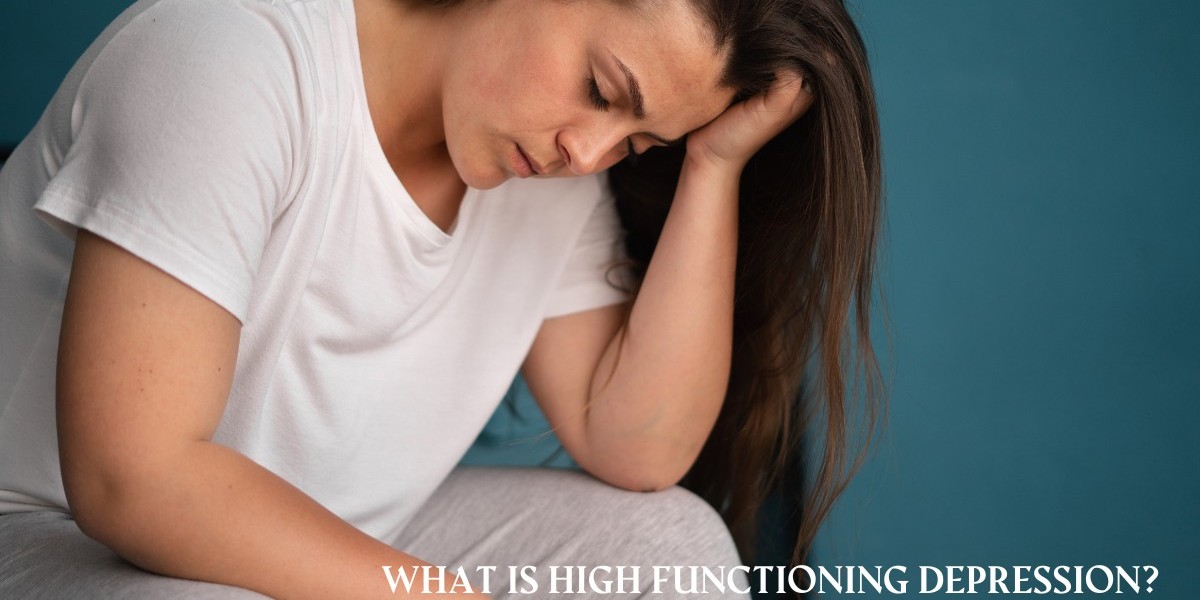High-functioning depression, also known as persistent depressive disorder (PDD), is a form of clinical depression that is characterized by its low intensity and long duration. Unlike major depression, high-functioning depression may not immediately disrupt a person's daily activities, which is why it’s often referred to as “hidden depression.” Individuals with this condition can maintain their daily routine and appear “normal” to those around them, even while silently battling internal struggles.
While many forms of depression involve episodes of remission, high-functioning depression can persist for years, often becoming a chronic condition. It is estimated that around 3% of the population suffers from this form of depression, making it an important yet often overlooked mental health issue.
How is High Functioning Depression Diagnosed?
Diagnosing high-functioning depression can be challenging. Since the symptoms may not be as obvious or severe as other forms of depression, it can be difficult for individuals to recognize what they are experiencing. For a proper diagnosis, individuals must exhibit at least two of the following symptoms for two years:
- Constant feelings of hopelessness and sadness
- Low self-esteem and self-worth
- Changes in appetite and sleep patterns
- Difficulty concentrating and making decisions
- Lack of interest in previously enjoyed activities
Additionally, individuals must not have experienced major depressive episodes or manic episodes during this period.
What are the Symptoms of High Functioning Depression?
The symptoms of high-functioning depression treatment vary from person to person, but some common signs include:
- Persistent sadness or emptiness
- Loss of interest in activities once enjoyed
- Changes in appetite and weight (either loss or gain)
- Trouble sleeping or sleeping excessively
- Fatigue and low energy levels
- Feelings of worthlessness or guilt
- Difficulty concentrating or making decisions
- Thoughts of death or suicide
Unlike other forms of depression, individuals with high-functioning depression may not display obvious signs of distress. They may continue to work, maintain relationships, and even participate in social activities. However, internally, they are often struggling with feelings of hopelessness and emptiness.
What Causes High-Functioning Depression?
The exact cause of high-functioning depression remains unclear. However, experts believe that a combination of genetic, biological, environmental, and psychological factors can contribute to its development.
Some risk factors for high-functioning depression include:
- A family history of depression
- Chronic stress or trauma
- Personal history of other mental health disorders
- Chronic illness or pain
- Substance abuse
These factors can increase the likelihood of someone developing high-functioning depression, though it can also affect individuals without any of these risk factors.
What Does it Feel Like to Live With High Functioning Depression?
Living with high-functioning depression often means trying to maintain a facade of normalcy while enduring intense inner struggles. People with this condition may feel exhausted by the constant effort to appear “okay” while experiencing a deep sense of emptiness and hopelessness. This internal battle can lead to feelings of isolation, as others may not understand the struggles that the person is facing.
Even though they may appear functional on the outside, the emotional toll of high-functioning depression can be overwhelming, leading to a profound sense of fatigue and discouragement.
What are the Signs of an Episode of Major Depression?
An episode of major depression involves more severe and intense symptoms than those found in high-functioning depression. These episodes can occur in individuals with high-functioning depression, complicating the diagnosis and treatment of their condition.
Signs of a major depressive episode may include:
- Persistent feelings of hopelessness, worthlessness, or guilt
- Complete loss of interest in all activities
- Suicidal thoughts or attempts
- Significant changes in appetite and sleep patterns
- Difficulty concentrating or making decisions
If someone with high-functioning depression experiences an episode of major depression, it’s crucial to seek professional help immediately. Proper treatment can help manage both the chronic symptoms of high-functioning depression and prevent future major depressive episodes.
How is High Functioning Depression Treated?
Although high-functioning depression can be challenging to diagnose, effective treatment options are available. Some of the most common treatment options for high-functioning depression include:
• Psychotherapy: Cognitive behavioral therapy (CBT) and interpersonal therapy are two common types of talk therapy that can help individuals manage their depressive symptoms.
• Medication: Antidepressants, such as selective serotonin reuptake inhibitors (SSRIs), can be prescribed to help regulate mood.
• TMS Treatment: Transcranial magnetic stimulation (TMS) treatment is a non-invasive option that uses magnetic fields to stimulate nerve cells in the brain, offering relief for those with depression.
• Lifestyle Changes: Incorporating regular exercise, a healthy diet, and stress management techniques can help improve overall well-being.
Seeking professional help is essential if you suspect that you or someone you know is suffering from high-functioning depression. With the right treatment, individuals can manage their symptoms and lead fulfilling lives.
Coping with High Functioning Depression
Although managing high-functioning depression is difficult, it’s not impossible. Here are a few strategies that can help:
- Talk to a Therapist: Speaking with a therapist or counselor can help individuals express their feelings and work through their struggles.
- Join a Support Group: Connecting with others who also have high-functioning depression can provide understanding and solidarity.
- Engage in Self-Care: Activities such as exercise, meditation, and pursuing hobbies can promote mental well-being.
- Educate Yourself and Others: Understanding high-functioning depression and educating loved ones can foster greater empathy and support.
- Be Open and Honest: Sharing your struggles with trusted friends or family can reduce feelings of isolation and increase emotional support.
Remember, high-functioning depression is a real and valid condition. Reaching out for help is a courageous step toward managing mental health. With proper treatment and coping strategies, individuals can navigate life despite the challenges of depression.









